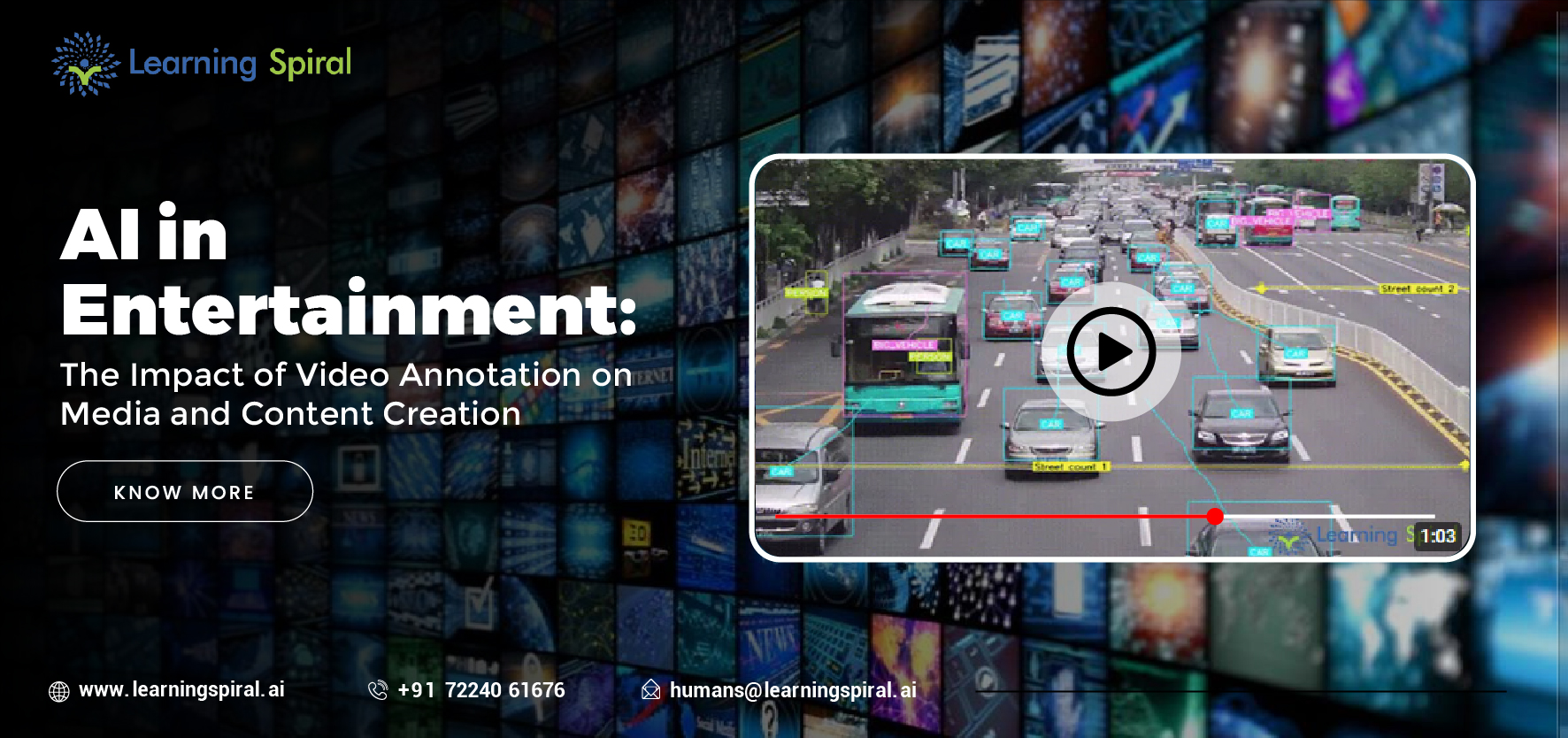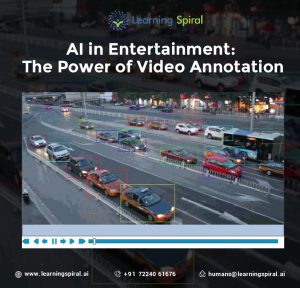
In the fast-evolving entertainment industry, video annotation has emerged as a transformative tool, revolutionizing media and content creation. As AI technologies advance, video annotation enables more precise and efficient processing of visual content, enhancing both production quality and audience engagement.
Video annotation involves labeling and tagging elements within video frames, such as objects, activities, and scenes. This process is critical for training AI models to understand and interpret complex visual data. By leveraging video annotation, entertainment companies can streamline various aspects of content creation, from automated editing to real-time scene analysis. 
One significant application of video annotation is in automated content tagging. AI models trained with annotated video data can automatically categorize and index content, making it easier for users to search and discover relevant media. This capability is particularly valuable for platforms like streaming services, where vast libraries of content need to be organized and made accessible efficiently.
Additionally, video annotation aids in enhancing viewer experiences through personalized recommendations. By analyzing annotated video data, AI algorithms can suggest content based on user preferences and viewing habits, leading to more engaging and tailored experiences.
In production, video annotation supports advanced visual effects and scene recognition. AI-powered tools can identify and track objects or actors within scenes, facilitating seamless integration of CGI and other effects. This results in higher-quality productions and reduces the manual effort required for editing and post-production.
Furthermore, video annotation plays a role in improving content moderation and compliance. By training AI models with annotated data, companies can automatically detect and address inappropriate content, ensuring that platforms adhere to regulatory standards and maintain a safe environment for users.
In conclusion, video annotation is a cornerstone of AI in entertainment, driving innovations in content creation, searchability, and user engagement. As AI technologies continue to advance, the role of video annotation will only become more pivotal in shaping the future of media and entertainment.

